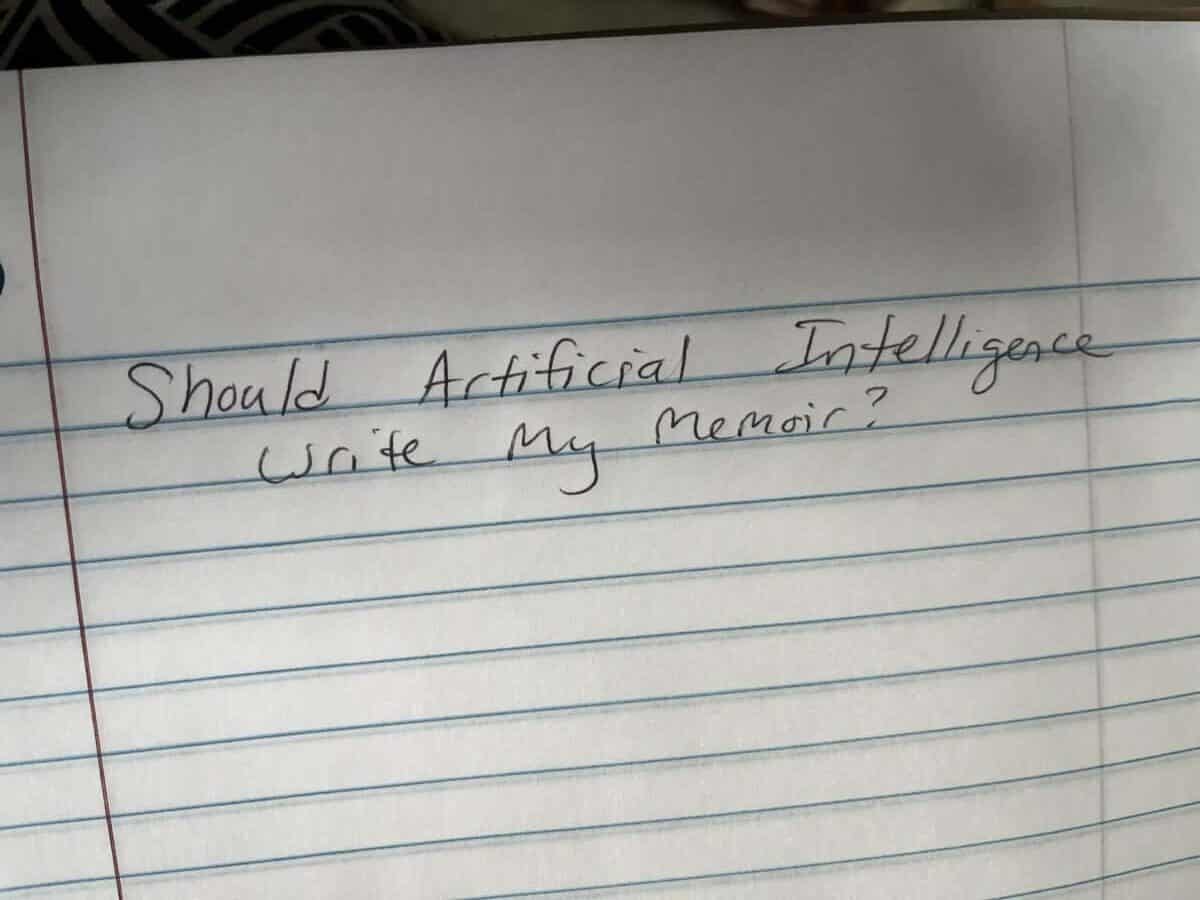This post may contain affiliate links.
“Strength and growth come only through continuous effort and struggle.”
– Napoleon Hill
Finishing the first draft of a short story or a manuscript is a strange, almost otherworldly sensation, isn’t it? Sort of like you’ve just shed your skin, or like a small part of you has died while another part has been reborn.
The other day, in my writing workshop, I gave my students a writing prompt, and when one of them read their work, they admitted that their AI app had written it for them. The writing was fine, and even sort of insightful, I suppose — strange to call it that. I’ve heard the argument that using an AI app is the modern equivalent of Shakespeare trading in his quill for a typewriter, that it’s simply a more efficient process to arrive at the same outcome.
But here’s the thing: if it doesn’t cost you something, then what is it worth?
I believe the desire to write is really connected to the desire to evolve. The thing with memoir is that while you know the facts of your life, sometimes you interpret those facts as the truth. But there’s a difference between autobiography and memoir.
Autobiography is typically anecdotal; it’s simply a recounting of the facts of your life. Memoir is thematically relevant. There’s something beneath the personal events of your life that speaks to our common humanity.
While AI might be terrific at getting down the facts, I wonder how effective it is in contextualizing these facts into some kind of new and deeper understanding of your experience. Einstein says, “You can’t solve a problem at the same level of consciousness that created the problem.” Can an AI raise your consciousness?
Perhaps. Though I doubt it. But even if it can, we must ask ourselves why we would want to subcontract the thrill of creation to a machine. Because the writer’s dirty secret is this: writing is fun.

Yes, it is challenging, and maddening, and scary. But ultimately, the reason writers write is because it scratches an itch that can’t be scratched in any other way.
It transforms us.
What are the consequences of subcontracting your imagination to an algorithm? If you don’t experience the ecstatic pain of birthing your creative work, how can you experience transformation?
Why Bother Writing, if AI Will Do It For Me?
My workshop, The 90-Day Memoir, involves a process of marrying the wildness of your imagination to the rigor of story structure.
As you explore the world of your story, you start to discover that your heart is opening, and that you’re seeing your story in a new way. You may discover compassion that you didn’t know existed, or rage at allowing boundaries to be crossed, or grief at losses you had convinced yourself were no big deal. You may discover that this work changes your life in subtle and not so subtle ways.
The key to remember is that you are not the author of your memoir, at least not your conscious self. You are the channel for your subconscious (which is the seat of your genius), to tell the story for you.
When you put the result before the process, you risk getting stuck. If you concern yourself with whether or not your memoir will publish, you’re less inclined to visit those dark crevices of your psyche where the juicy stuff resides.
When you wonder if you should bother writing it, or if anyone will care about what you have to say, you’re bypassing the impulse to express, and listening to a voice that isn’t yours. It’s a critical voice that may, ironically, be trying to protect you. You don’t have to completely ignore or try to silence this voice. But you also can’t take any criticism at face value. Instead, be curious about it, listen to it, and notice where it lives in your narrative.
I believe that why we write is more important than what we write. I believe the reason we write is to know ourselves. In fact, I believe the stories we create are merely byproducts documenting our growth.
The ultimate promise of AI is that it will do all the hard work. And thus, it will become smarter, powerful, more robust.
It will grow…
…and we will stay the same.
Alan Watt is the founder of L.A. Writers’ Lab. He is an LA Times bestselling novelist and the author of the national bestseller, The 90-Day Novel. His new book, The 90-Day Memoir will be published this fall.
A note from Jody: I’m grateful that Alan Watt took the time to contribute this guest post.
He’s been very influential in my writing over the last four years, and a lot of the stories I shared during my mom’s battle with pancreatic cancer, including that embarrassing moment in the dog show, and the time she made it up the mountain (but barely made it back down) are actually just excerpts from what I wrote while going through The 90-Day Novel and The 90-Day Rewrite – both written by Alan Watt.
Those manuscripts and many more are still just sitting on my hard drive; but I plan to participate in Al’s 90-Day Memoir Workshop this Fall, so hopefully I will do something with all those stories eventually. I have to realize that even the delay is part of my story…
Thank you, Alan 🙂
Recent Posts
I'm keeping today's account rather short; but I'm still going to check in for the sake of consistency. What Did I Accomplish Today to Be a Writer? I did Day 127 of the 100 Words a Day Writing...
This is the day that the LORD has made I will rejoice and be glad in it. What Did I Accomplish Today to Be a Writer? I'm so glad that God gave us the example of resting one day in seven. ...
